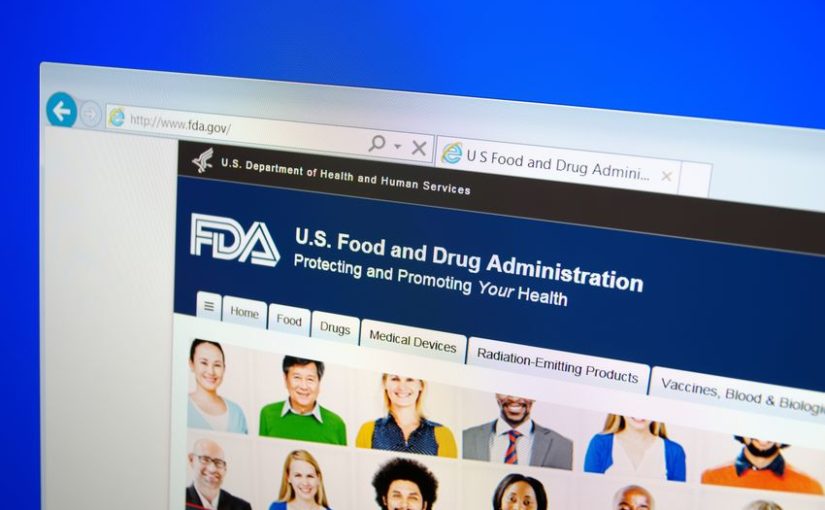New Steps to Advance FDA’s Evaluation of CBD

The Food and Drug Administration (FDA) is moving forward with evaluating ways to allow cannabis and cannabis-derived products like cannabidiol (CBD) into foods, beverages, and dietary supplements. A public hearing will be held on May 31, 2019 at its White Oak Campus in Silver Spring, Maryland to discuss ways to bring products containing CBD and other cannabinoids to market. The information gathered from the public hearing and through written public comment will help the FDA address important scientific, technical, and policy questions.
CBD is predominantly derived from the Cannabis Sativa plant which is further differentiated into hemp and marijuana. Hemp is a form of the Cannabis Sativa plant with less than 0.3% of the psychoactive component THC. In contrast, marijuana contains more than 0.3% THC and is often cultivated to have THC levels of 5-30%. The FDA seeks information on safe consumption rates, including cumulative effects and whether eating, absorbing, or inhaling CBD affects its safety. In addition, it seeks scientific information on the interaction of CBD with other substances, such as drug ingredients. The FDA also seeks to evaluate if there are sufficiently robust systems currently in place to collect this data.
CBD safety issues may impact liability exposure for manufacturers and retailers of such products. Despite the widespread sale of CBD-containing foods and products, the FDA, who is responsible for protecting the public health of people and animals and ensuring the safety of our nation’s food supply, cosmetics, and both the safety and efficacy of human and animal drugs, has not yet evaluated its safety for those applications.
Substantial studies were performed by the FDA on the safety and efficacy of Epidiolex, a drug used to treat two rare forms of epilepsy with the active ingredient CBD. These studies raised some potentially serious safety risks and side effects associated with the use of CBD. The public hearing will address questions about the safety of CBD and to further identify whether to allow the use of CBD in dietary supplements and other foods. Another concern is whether special considerations are needed for potentially sensitive human populations such as children, adolescents, pregnant or lactating women or certain sensitive animal populations.
From a pharmaceutical research perspective, the FDA is also evaluating if the existence of commercially available CBD products would undermine the drug approval process or would decrease incentives for continued clinical studies of CBD and other related cannabinoids. This raises the question of what the FDA could do to promote continuing research and development of cannabis and cannabis-derived compounds as CBD becomes more commercially available.
Bioaccumulation–the gradual accumulation of substances in an organism, is another concern the FDA will be investigating at the meeting. The FDA seeks answers specifically related to CBD and general food use including dietary supplements from a food safety perspective. Included here, the FDA wants information relating to residues of CBD in human foods like eggs, meat, and milk after feed stock animals consume CBD products.
The next general area of concern for the FDA is manufacturing and product quality. As can be expected, the questions center around methods for ensuring product quality and consistency. Information is sought regarding standards for CBD manufacturing, processing, and storage. The FDA has questions about standardizing definitions of terms relating to CBD and other cannabinoids in cannabis products. For example, what is “hemp oil” and does it have a specific meaning? Finally, under consideration is evaluating the functional purpose for adding CBD to foods from a nutritional value or technical effect. This will require an evaluation of evidence showing that CBD has the intended or perceived effect when it is added to food or used in a dietary supplement.
The last general area for which the FDA seeks data and information is in marketing, labeling, and sales. Questions here focus on how consumers should be informed about the risks and benefits of CBD and whether risk information needs to be population specific or will a general warning be enough. The FDA is looking for input from existing state programs on the types of restrictions and limitations that are in place regarding manufacturing and distribution and what additional limitations might be appropriate to ensure that consumers are informed and that the public is protected.
The FDA requires that all cannabis products, whether hemp-derived or otherwise, that are marketed as having a therapeutic benefit be approved for its intended use before it may be sold across state lines. The FDA’s current position is that CBD may not be added to food or be marketed as a dietary supplement if these products are going into interstate commerce. This policy position may be honored more in the breach, as shown by the abundant supply of CBD-containing products available at national chain stores, small retailers and by mail order. Businesses should carefully evaluate the risk associated with such sale and marketing activities.
Foley, Baron, Metzger & Juip offers comprehensive assistance to those seeking licensure under the Marihuana Facilities Licensing Act, as well as compliance with local medical marihuana regulations. We also advise clients on related matters, including business formation, land use, environmental compliance, facilities siting and related issues. Contact Richard Baron or Daniel Cortez for more information at 734.742.1800.

